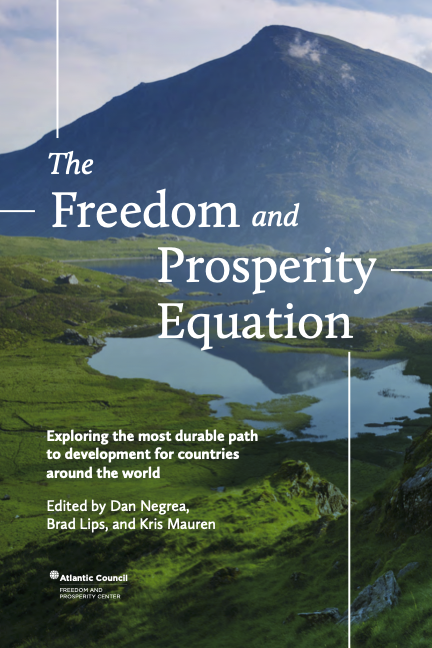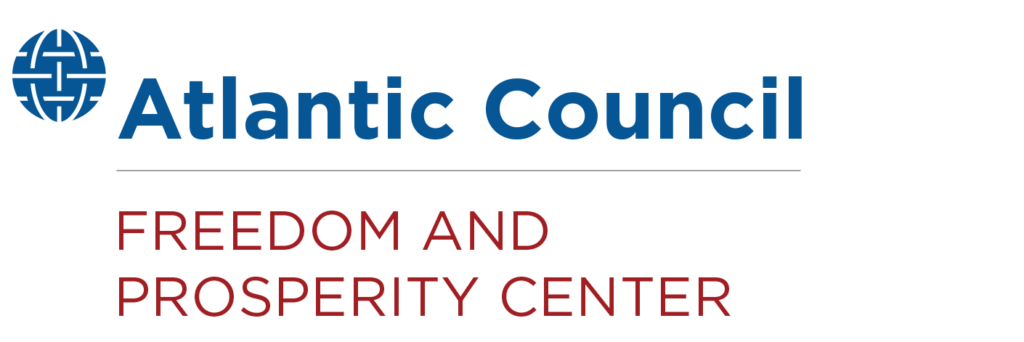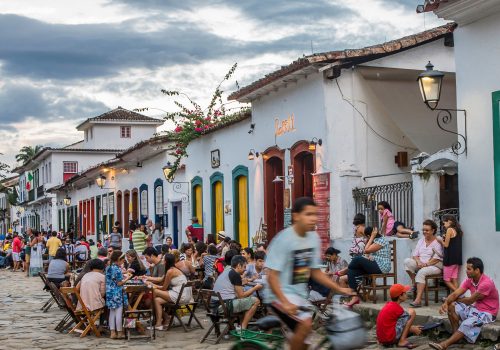Get the ebook
The essays in this book address development economics questions that have been often asked over the centuries: Does freedom lead to prosperity or does the causation go the other way? Or, to use the words of Vanessa Rubio-Márquez in her essay, is prosperity the seed or the fruit of freedom? Or is there perhaps a virtuous cycle in which more freedom leads to a more prosperous society in which the citizenry demands yet more freedoms, and freedom and prosperity mutually reinforce each other?
The answers to the above questions have real-world implications because if more freedom leads to more prosperity, it behooves governments to adopt freedom policies if they care about the welfare of their citizens.
Thirty scholars and political leaders from twelve countries have contributed seventeen essays to this volume. They make the case that durable prosperity is achieved in countries with economic, political, and legal freedom.

Get a free paperback copy
Read online
Foreword by Juan José Daboub
The Atlantic Council Freedom and Prosperity Center has assembled a collection of essays that highlight examples of well-designed and technically sound public policies. This volume convincingly shows that greater freedom is the path toward durable development for countries around the world.
As a former minister of finance and chief of staff of the president of El Salvador, and as former managing director of the World Bank Group, responsible for Africa, the Middle East, East Asia and the Pacific, and Latin America, I have seen in over 110 countries what does and doesn’t work in economic development.
When individuals can take destiny into their own hands, and when government guarantees economic freedom, the most creative solutions are unleashed, and the most complex problems are resolved.
My own country, El Salvador, in the twelve years that followed the 1992 Peace Accords, went from economic hardship to “investment grade” by way of greater freedom.
In the late 1970s and the 1980s, the final, bloody chapter of the Cold War was fought in El Salvador. With Nicaragua having already fallen into Communist hands, the Soviet Union used Cuban and other terrorist organizations to kill Salvadorans and destroy our economy. Their objective was to turn free citizens into slaves of a system that has always failed: socialism.
The violent communist assault on El Salvador halted and reversed the process of development: 45 percent of the population was left in extreme poverty and 50 percent did not have access to public services. To obtain a telephone line took five years. The rate of unemployment and underemployment was above 40 percent.
A vast quantity of human talent fled the country during the war, never to return, leaving families separated and the economy crippled. The country struggled under high levels of public debt and corruption. The international community viewed post-war El Salvador as a shattered country with low growth and zero credibility.
But Salvadorans wanted a better future. Most importantly, we had faith that it could be achieved. Thanks to President Reagan, Pope John Paul II, and the resilience of our people, we had not fallen into Communist hands. After signing the Peace Accords, we rolled up our sleeves and started a process of profound reforms based on prioritizing economic freedom. We looked to Chile and Singapore as our examples.
Our comprehensive reforms transformed multiple sectors of the economy. We restructured, deregulated, and privatized banks, energy, telecoms, ports, and pensions. And to help bulletproof the reforms, promote macroeconomic stability, contain the rates of interest and inflation—and especially to remove from populist politicians the temptation of printing money at will—we formally and officially dollarized the economy.
At the heart of our reforms was a set of basic principles: (a) remove obstacles that prevent people from taking destiny into their own hands; (b) instead of providing handouts, promote opportunities; (c) an imperfect market is better than a perfect bureaucrat telling people what to do; (d) change the role of government from that of an orchestra conductor to that of a referee; and (e) maximize competition and minimize regulation.
These reforms allowed El Salvador, in a relatively short period of time, to reduce extreme poverty to less than 19 percent, unemployment and underemployment were cut by a half, access to public services reached close to 90 percent, and phone penetration soared to 150 percent. We cut debt, boosted economic growth, and our country, viewed in 1992 as a “hardship” case, was reclassified twelve years later as investment grade.
The success of El Salvador was based on our decision to pursue economic freedom. We did it with democracy. We did it transparently. We did it with the support of the public. Our results are clear. In 2000 and 2001, The Index of Economic Freedom, published by the Wall Street Journal and Heritage Foundation, ranked El Salvador ahead of our role model, Chile, and above Germany, Spain, and various other advanced economies.
The common thread between the Salvadoran experience and those compiled in this book is that the soundest path to prosperity is by way of greater economic freedom. The Atlantic Council Freedom and Prosperity Center presents the efforts of those who have made effective public policy possible, and the results are of extreme value for those embracing the challenge of changing their countries for the better.
It is with great pleasure that, at the request of Dan Negrea, I am able to contribute this foreword, knowing that this book will become a valued reference for professional reformers and economists, and, in general, for everyone interested in positive reforms in their own countries and around the world. For those who understand how effective reforms can transform people’s lives and livelihoods, this book is essential reading.
Juan José Daboub, PhD
February 2023
PART I: Theoretical reflections on freedom and prosperity
PART II: National and regional reflections on freedom and prosperity

The Freedom and Prosperity Center aims to increase the prosperity of the poor and marginalized in developing countries and to explore the nature of the relationship between freedom and prosperity in both developing and developed nations.
Cover Photo: Alan Novelli/Getty Images
